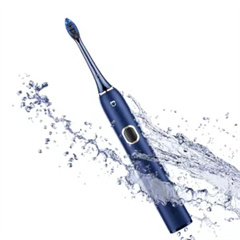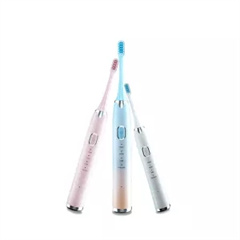1. Personal Hygiene and Routine: Toothbrushes are associated with personal hygiene routines, reflecting an individual’s commitment to self-care. Using a toothbrush daily becomes a ritual that contributes to one’s sense of cleanliness and overall well-being.
2. Habit Formation: Toothbrushes play a role in habit formation. They’re often part of morning and nighttime routines, and this consistency can lead to the formation of healthy habits. The presence of a toothbrush can act as a trigger to engage in oral care.
3. Comfort and Familiarity: People often develop a preference for specific toothbrushes due to comfort and familiarity. The feel of the handle, the bristle texture, and the weight can all influence an individual’s choice. A chosen toothbrush becomes a tool that offers comfort during daily use.
4. Symbolism of Cleanliness: A toothbrush symbolizes cleanliness, health, and self-care. The act of brushing teeth serves as a visual cue that someone takes care of their hygiene, contributing to positive self-perception and confidence.
5. Association with Childhood: Toothbrushes are often introduced during childhood as part of early oral care education. The toothbrush becomes associated with growth, development, and learning important life skills.
6. Psychological Comfort: A favorite toothbrush can provide a sense of psychological comfort, especially during times of stress or change. It’s a familiar item that can provide a sense of stability.
7. Emotional Attachment: Some individuals may develop an emotional attachment to a particular toothbrush due to memories associated with it. This attachment can make it difficult to replace the toothbrush even when it’s worn out.
8. Sense of Control: Choosing and using a toothbrush gives individuals a sense of control over their health and appearance. It’s a small action that contributes to a larger goal of maintaining oral health.
9. Purchase Decisions: The process of selecting a toothbrush can involve various factors, including brand, design, color, and features. These decisions can be influenced by personal preferences, marketing, and recommendations from dentists.
10. Environmental Concerns: With growing environmental awareness, some individuals consider the environmental impact of their toothbrushes. Choosing eco-friendly options aligns with their values and contributes to a sense of responsibility.
In summary, toothbrushes go beyond their functional role; they hold psychological significance tied to hygiene, habit formation, comfort, and self-care. The choice of toothbrush, its design, and the act of brushing itself can have emotional and psychological implications, impacting how individuals view themselves, their routine
and their well-being. 







